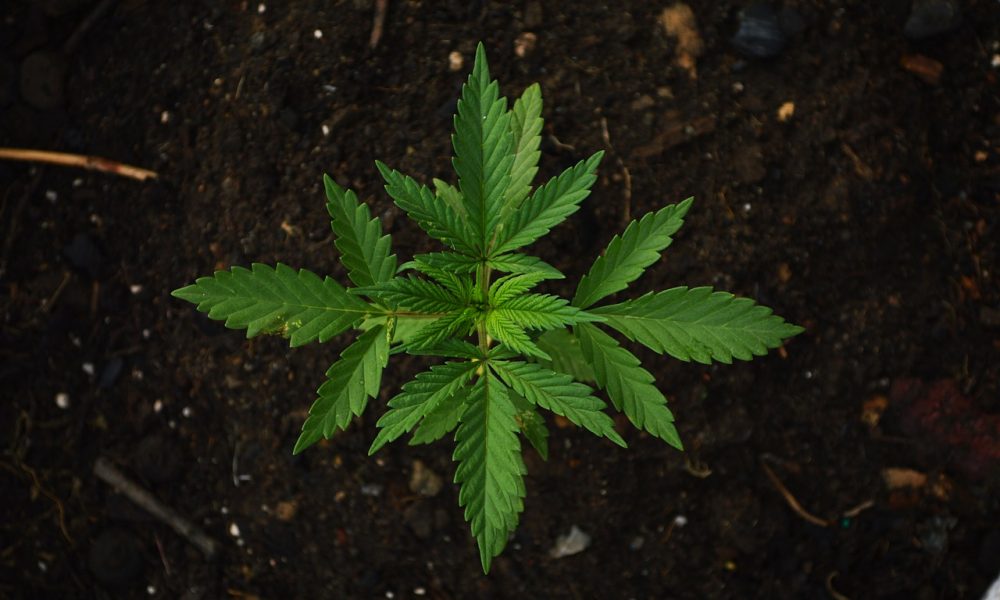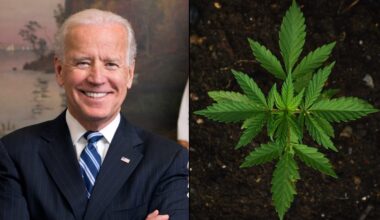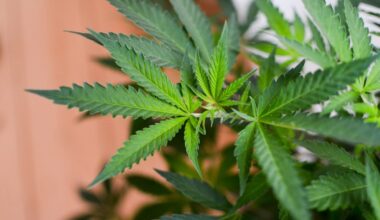A Senate committee held a listening session on Friday to address marijuana issues for Indian tribes, discussing relevant legislation and the importance of Tribal sovereignty with respect to cannabis.
The Senate Indian Affairs Committee, chaired by Sen. Brian Schatz (D-HI), first announced the meeting, titled “Cannabis in Indian Country,” last week.
Schatz’s communications director recently told Marijuana Moment that the session was an opportunity for tribes to share feedback on cannabis issues with Senate staffers. The session is not considered a formal hearing, however, and no senators participated.
Numerous representatives of Indian tribes and trade associations across the country participated in the meeting, both through in-person testimony and via webinar software. A main theme of the conversation was that many native communities feel that while they have cannabis businesses within their jurisdictions, they do not have the same economies and infrastructure resources as states that have legalized.
“The Seneca Nation of Indians supports a tribal-federal-state framework that allows tribes to create and regulate their own cannabis industry, completely free from state interference,” one official said at the session. “Tribes and tribal communities are in the best position to determine what will and what won’t work on their territories, and we believe that states have no role in this process.”
Other tribes who had representatives present at the listening session included the Suquamish Tribe, Pueblo of Laguna, Kumeyaay Nation, Puyallup Tribe and Santee Sioux Tribe.
While many of the conversations focused on tribal-specific policies and issues such as taxation and tribal contracts with state governments, there were also several witnesses who stressed the need for a comprehensive end to federal prohibition to uplift tribal markets.
Some tribal representatives pushed for expanded trade authorization for cannabis, including the possibility of marketing marijuana not just within their own territories but also across state borders and internationally in countries such as Canada and Mexico.
There were several complaints over the existing tribal-state compact system as it relates to the gaming industry, with representatives saying there’s a serious need to learn lessons from that to prevent similar problems from occurring when it comes to cannabis.
A number of witnesses also raised the issue of incremental reform, pushing for the passage of the Secure and Fair Enforcement (SAFE) Banking Act, for example.
Here are the questions that the committee posed to witnesses to prompt discussion:
- Is your Tribe currently participating in the cannabis industry? If so, please provide a brief description of your operation(s).
- For Tribes not currently participating in the cannabis industry, what are your main concerns about industry participation?
- What legislative solutions would you propose to address your concerns?
- What administrative solutions would you propose to address your concerns?
- For Tribes currently participating in the cannabis industry, what are the main issues you encounter as a Tribal operator?
- What legislative solutions would you propose to address your concerns?
- What administrative solutions would you propose to address your concerns?
- If cannabis is decriminalized at the federal level, what Tribal-Federal-State framework would you propose to ensure Tribal interests are safeguarded?
The panel will be accepting written comments on tribal cannabis issues through July 9 at the email address [email protected].
In March, a coalition of nine U.S. senators sent a letter to Attorney General Merrick Garland, urging him to direct federal prosecutors to not interfere with marijuana legalization policies enacted by Native American tribes.
The letter requested that the Justice Department “respect the inherent sovereignty of Tribal governments and cease the enforcement of the Controlled Substances Act on Tribal land as it pertains to the growth, possession, and use of cannabis for medicinal, agricultural, and recreational purposes, where those Tribes have legalized this activity for its own members and those acting in compliance with Tribal law.”
There was previous Obama-era DOJ guidance on prosecutorial discretion for tribal governments that opted to legalize cannabis. But that guidance, known as the Wilkinson Memo, was rescinded by then-Attorney General Jeff Sessions in 2018, along with a separate memo urging prosecutors not to go after states that established regulated cannabis markets.
The senators urged the attorney general to “reinstate prosecutorial discretion and allow U.S. Attorneys to deprioritize cannabis enforcement where states and Tribes have legalized cannabis.”
Representatives at Friday’s listening session also urged the administration reinstate similar guidance.
While the tribe-specific DOJ guidance was rescinded, the federal government has generally taken a hands-off approach to marijuana enforcement in states that have chosen to legalize the plant. Last year, however, a federal agency raided a small, home cannabis garden of a medical cannabis patient living on Indian territory in New Mexico.
The governor of the Pueblo of Picuris told Marijuana Moment at the time that he felt the raid amounted to a federal double standard, and the tribal government has sought answers from the federal Bureau of Indian Affairs (BIA), which falls under the Department of the Interior.
Last month, the Pueblos of Pojoaque and Picuris signed an intergovernmental cooperative agreements with New Mexico’s government that allows the tribes to impose their own tax on cannabis products sold within their tribal jurisdictions.
“New Mexico has a strong history of collaborating with tribes to efficiently administer taxes while recognizing tribal sovereignty and the limitations of state authority on tribal lands,” New Mexico Taxation and Revenue Secretary Stephanie Schardin Clarke said in a press release. “This administration is committed to strengthening relationships with tribal governments.”
Pojoaque Gov. Jenelle Roybal said that the tribe is “very pleased to enter into this cannabis tax agreement and continue and expand our cooperative efforts with the State of New Mexico regarding intergovernmental tax coordination and administration.”
Other states like Washington similarly allow Native tribes to enter into intergovernmental agreements that would authorize Indian territories to enact their own regulations, penalties and tax policies for cannabis.
Last year, a bipartisan group of congressional lawmakers asked House leaders to include provisions broadly protecting states and tribes that have legalized marijuana from facing federal interference in final spending legislation for Fiscal Year 2022. That did not pan out, however.
Amendments with those provisions were made in order for floor votes by the House Rules Committee in July for the Commerce, Justice, Science, and Related Agencies (CJS) funding package, but that spending legislation was never taken up on the floor as a result of disputes on other, unrelated law enforcement provisions.
The cannabis language has been proposed in past sessions as well, passing the House in 2020 and 2019. But it was not attached to final appropriations legislation sent to the president’s desk.
Separately, the U.S. Department of Agriculture (USDA) has approved hemp regulatory plans submitted by dozens of tribes across the country since the crop was federally legalized under the 2018 Farm Bill.
Medical Disclaimer:
The information provided in these blog posts is intended for general informational and educational purposes only. It is not a substitute for professional medical advice, diagnosis, or treatment. Always seek the advice of your physician or other qualified healthcare provider with any questions you may have regarding a medical condition. The use of any information provided in these blog posts is solely at your own risk. The authors and the website do not recommend or endorse any specific products, treatments, or procedures mentioned. Reliance on any information in these blog posts is solely at your own discretion.






